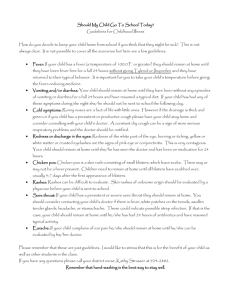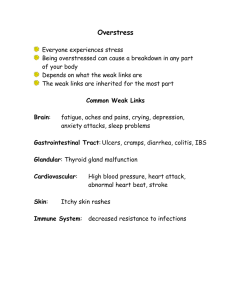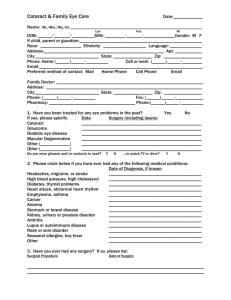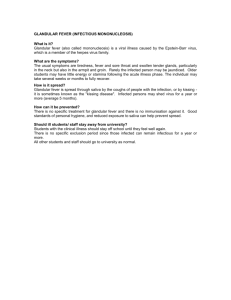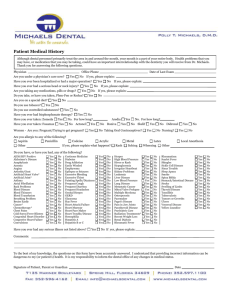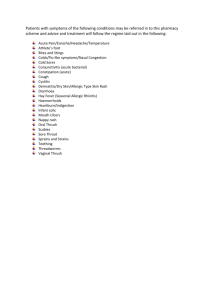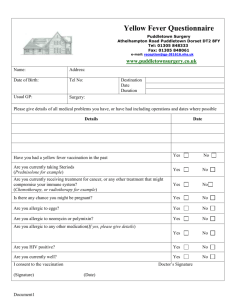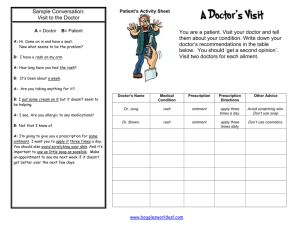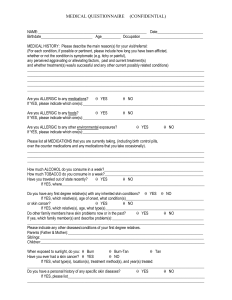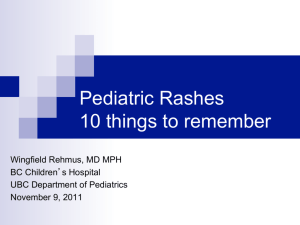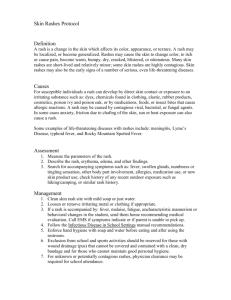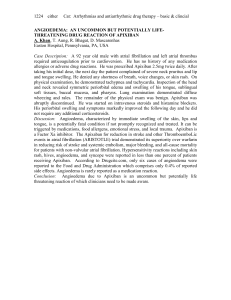GLANDULAR FEVER
advertisement
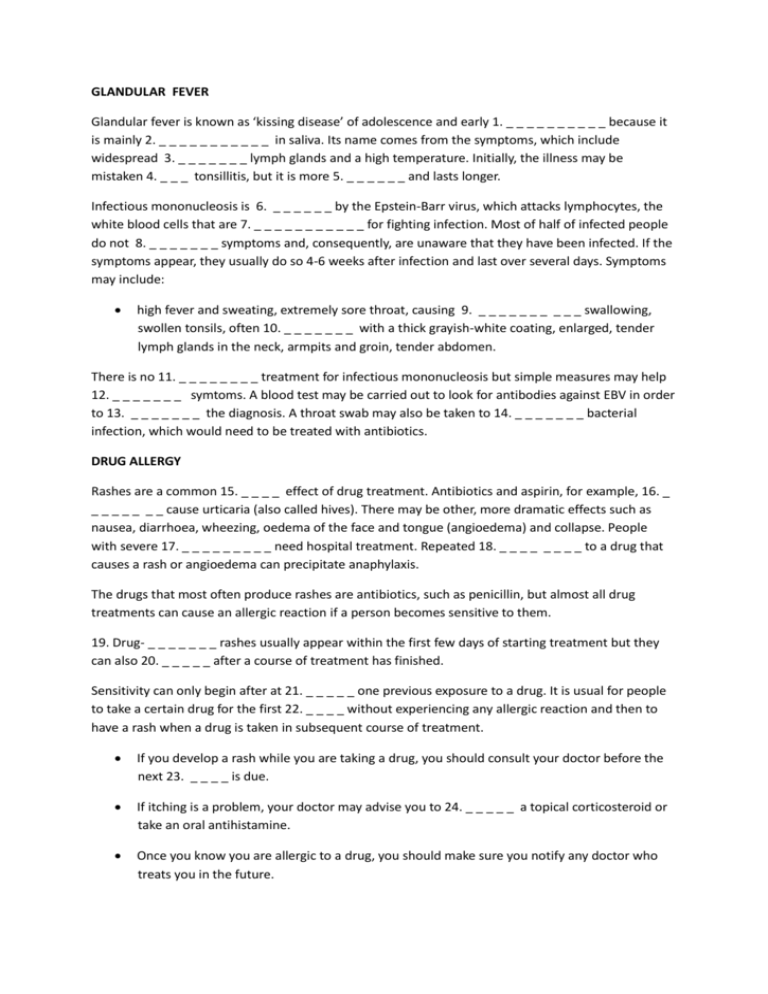
GLANDULAR FEVER Glandular fever is known as ‘kissing disease’ of adolescence and early 1. _ _ _ _ _ _ _ _ _ _ because it is mainly 2. _ _ _ _ _ _ _ _ _ _ _ in saliva. Its name comes from the symptoms, which include widespread 3. _ _ _ _ _ _ _ lymph glands and a high temperature. Initially, the illness may be mistaken 4. _ _ _ tonsillitis, but it is more 5. _ _ _ _ _ _ and lasts longer. Infectious mononucleosis is 6. _ _ _ _ _ _ by the Epstein-Barr virus, which attacks lymphocytes, the white blood cells that are 7. _ _ _ _ _ _ _ _ _ _ _ for fighting infection. Most of half of infected people do not 8. _ _ _ _ _ _ _ symptoms and, consequently, are unaware that they have been infected. If the symptoms appear, they usually do so 4-6 weeks after infection and last over several days. Symptoms may include: high fever and sweating, extremely sore throat, causing 9. _ _ _ _ _ _ _ _ _ _ swallowing, swollen tonsils, often 10. _ _ _ _ _ _ _ with a thick grayish-white coating, enlarged, tender lymph glands in the neck, armpits and groin, tender abdomen. There is no 11. _ _ _ _ _ _ _ _ treatment for infectious mononucleosis but simple measures may help 12. _ _ _ _ _ _ _ symtoms. A blood test may be carried out to look for antibodies against EBV in order to 13. _ _ _ _ _ _ _ the diagnosis. A throat swab may also be taken to 14. _ _ _ _ _ _ _ bacterial infection, which would need to be treated with antibiotics. DRUG ALLERGY Rashes are a common 15. _ _ _ _ effect of drug treatment. Antibiotics and aspirin, for example, 16. _ _ _ _ _ _ _ _ cause urticaria (also called hives). There may be other, more dramatic effects such as nausea, diarrhoea, wheezing, oedema of the face and tongue (angioedema) and collapse. People with severe 17. _ _ _ _ _ _ _ _ _ need hospital treatment. Repeated 18. _ _ _ _ _ _ _ _ to a drug that causes a rash or angioedema can precipitate anaphylaxis. The drugs that most often produce rashes are antibiotics, such as penicillin, but almost all drug treatments can cause an allergic reaction if a person becomes sensitive to them. 19. Drug- _ _ _ _ _ _ _ rashes usually appear within the first few days of starting treatment but they can also 20. _ _ _ _ _ after a course of treatment has finished. Sensitivity can only begin after at 21. _ _ _ _ _ one previous exposure to a drug. It is usual for people to take a certain drug for the first 22. _ _ _ _ without experiencing any allergic reaction and then to have a rash when a drug is taken in subsequent course of treatment. If you develop a rash while you are taking a drug, you should consult your doctor before the next 23. _ _ _ _ is due. If itching is a problem, your doctor may advise you to 24. _ _ _ _ _ a topical corticosteroid or take an oral antihistamine. Once you know you are allergic to a drug, you should make sure you notify any doctor who treats you in the future. Family Health Guide – Dr. Miriam Stoppard KEY: 1. adulthood, 2. transmitted, 3. swollen, 4. for, 5. severe, 6. caused, 7. responsible, 8. develop, 9. difficulty, 10. covered, 11. specific, 12. relieve, 13. confirm, 14.exclude, 15. side, 16. commonly, 17. reactions, 18. exposure, 19. induced, 20. occur, 21. least, 22. time, 23. dose, 24. apply.
